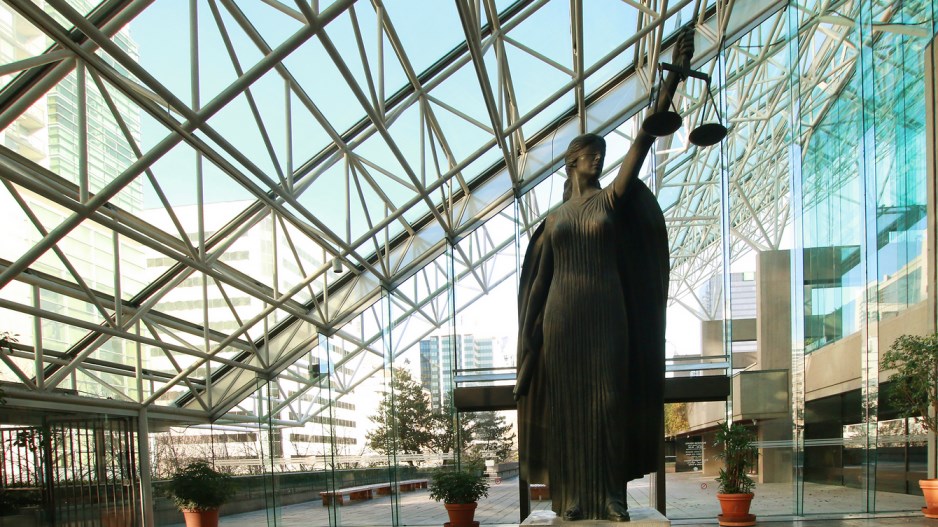The RCMP officer responsible for the evidence collected on the day of Huawei Technologies CFO Meng Wanzhou’s arrest in Vancouver two years ago said he had no indication from the police’s central financial crimes unit that it would be passing Meng’s devices and passwords onto U.S. investigators.
RCMP Const. Gurvinder Dhaliwal told the court at Meng’s extradition hearing Tuesday that he went as far as removing the SIM card from Meng’s cell phone and other electronic devices to record serial and model numbers – even collecting a photo log of items as evidence in the case.
Dhaliwal noted he did so because it was requested by the RCMP central financial crimes unit, but added he did not how what purpose such a collection would serve.
Meng defence lawyer Scott Fenton, however, cited an email from Dhaliwal’s supervisor – Sergeant Janice Vander Graaf - that said the officer told the supervisor that the financial crimes unit provided the information to the U.S. Federal Bureau of Investigation (FBI), confronted Dhaliwal on the email’s veracity.
“You are saying you have no recollection of telling your supervising sergeant that you provided [the information], which was then provided to the Legat [FBI’s foreign Legal Attache]?” Fenton asked Dhaliwal. “Why would your managing supervisor mention that in her notes?”
“I cannot speak to her notes,” Dhaliwal said. “You would have to ask her.”
“We will,” Fenton retorted.
Tuesday’s cross-examinations centred around the RCMP’s handling of Meng’s devices as evidence, with Fenton asking Dhaliwal if he considered the removal of a device’s SIM card an official search – since the police did not have the authorization to carry out a search of Meng’s devices. Dhaliwal replied that he does not consider such a move a search, since the removal of SIM cards are all done on the exterior of the devices and did not involve delving into their contents.
The defence also noted that the RCMP completed the documentation of Meng’s devices – cell phone, iPad and MacBook – on March 27, 2019, but the devices were then just kept in a locker at the RCMP offices in Surrey rather than being put into the registry as is required. (That error was not discovered until August of that year, Dhaliwal confirmed.)
Dhaliwal replied that it was not his responsibility to do so – that there was another officer in charge of such transfers.
“Were you the exhibit officer on this case,” Fenton pursued.
“Yes,” Dhaliwal said.
Fenton also accused Dhaliwal of received orders from the FBI to collect Meng’s device passcodes because they would be needed for U.S. investigators to look into the devices’ contents. Dhaliwal refuted that accusation, saying that he received no calls from the FBI on that day.
The defence also revisited the point that the RCMP could have carried out Meng’s arrest earlier, either directly on the plane when it arrived or on the jetway as soon as the Chinese tech executive got of the aircraft.
Dhaliwal reiterated that – despite the fact that Meng has no history of violent crimes and has passed through an airport security check when she boarded the plane in Hong Kong – that the RCMP and the CBSA had to consider passengers’ safety in deciding how to carry out Meng’s arrest.
“You have no idea how people will react,” Dhaliwal said. “You need to consider everything.”
He added that – while the RCMP has served arrest warrants on the plane in previous instances – the CBSA would have its say on what happens upon the plane’s arrival because it was their jurisdiction to assess passengers first.
In the afternoon, the seventh witness to take the stand – the aforementioned RCMP sergeant Vander Graaf – backed up Dhaliwal’s claim that the procedure to stop Meng as she got off the plane, then escorting her to customs to conduct a secondary inspection by the CBSA, was the “reasonable course of action.”
“There was more space for the CBSA to complete their processes, then seamlessly – hopefully seamlessly – transitioning to RCMP custody,” Vander Graaf said, adding she did not know that the CBSA inspection would almost last three hours.
“They are familiar with their jobs in terms of the secondary inspection. It’s not my role to tell them what to do.”
Vander Graaf did confirm on the stand that her own supervising inspector “suggested strongly” that the RCMP should go onto the plane to make the arrest. But Vander Graaf also noted that she does not know if her supervisor had experience in serving warrants in extradition request cases like this one.
“When I hear the suggestion, I had concerns over the safety issue,” she said. “Also, it’s not our jurisdiction to just go onto a plane and arrest someone.”
Vander Graaf did relay the suggestion to Dhaliwal, however, although the final procedure took a different – and, according to Vander Graaf, “appropriate” – course of action.
The hearings continue on Wednesday.




